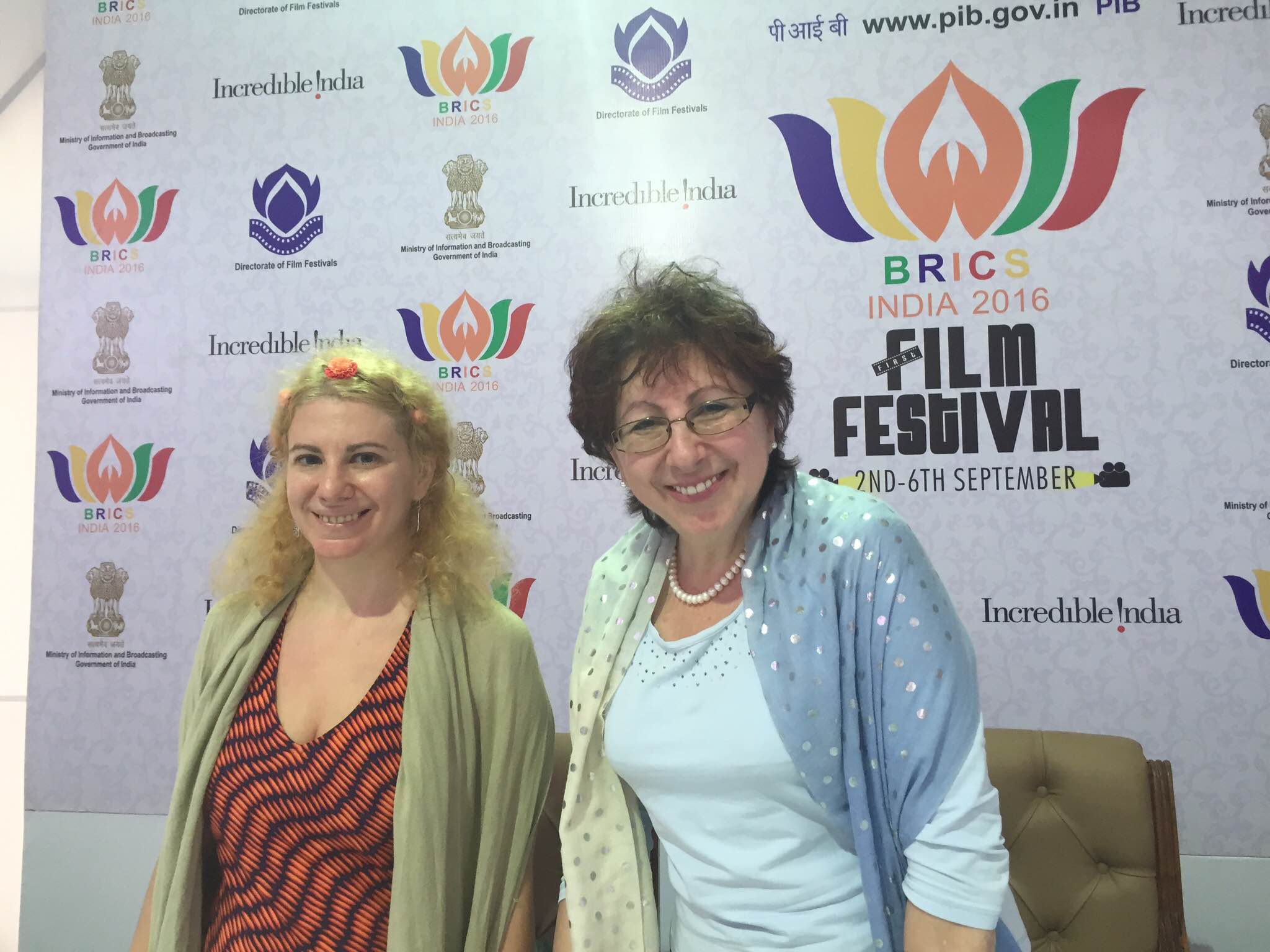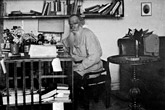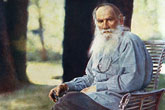Tolstoy & Gandhi bridged a spiritual gap between Russia & India

The story of Leo Tolstoy and Mohandas Karamchand (later Mahatma) Gandhi's correspondence does not include a number of well-known facts from the biographies of the two great men. Today, a little more than a hundred years after they corresponded, their ideas are beginning to resound with a new force at a stage when the world is experiencing a new surge of violence and regional conflicts.
The documentary film "Tolstoy and Mahatma Gandhi: a double portrait in the interior of the age" by Galina and Anna Yevtushenko exactly serves this purpose; to call people to peace and dialogue, to remind them about the possibilities of spiritual closeness between the two cultures that seem very distant from each other. After all, the son of India and the son of Russia found a common language and understanding.
That is exactly how guests perceived the picture at the BRICS film festival in New Delhi, where it premiered on Sunday, September 4.
Galina Yevtushenko, the director and producer of the film, said one of the main motives for making the film was the low awareness among both the Russian and the Indian people of the proximity of philosophical ideas between Tolstoy and Gandhi, their correspondence, as well as its significance for Russian-Indian relations.

"If you're on one of Moscow’s streets and you ask someone whether you know Leo Tolstoy, ten out of ten will say" yes. "But what do they know? Only "War and Peace", "Anna Karenina", and nothing else,” said Galina Yevtushenko at a press conference in New Delhi at the premiere. “If you ask who Gandhi is, not everyone will have the correct response. Someone may have heard about the philosophy of nonviolence. That's all. It was very important for us to give people the opportunity to learn the philosophy of Gandhi and Tolstoy. "
Director and co-writer Anna Yevtushenko noted that many express bewilderment when they hear about the proximity of the ideas of Tolstoy and Gandhi who, during their lifetime, were awarded the honorary title of great spiritual teachers. After all, they belonged to different cultures, and even the time of their activity does not completely coincide – the Russian writer died in 1910, and Gandhi reached the peak of fame in the years between the First and Second World Wars.
"Their only contact was their correspondence, which lasted just over a year, but it had a significant impact on Gandhi,” said P. Srinivasan Raghavan, former Indian Ambassador to Russia. "Tolstoy was a tree, Gandhi was the fruit."
“What we wanted to show in the film was how Tolstoy's ideas influenced Gandhi," said Anna Yevtushenko.
The film begins in the year 1909. Tolstoy, already recognized worldwide as a writer and thinker, receives a letter from London; the first of six letters written by Mohandas Karamchand (later Mahatma) Gandhi in which he talks about his fight for equal rights for Indians in South Africa.
Tolstoy had long been interested in the East. At the age of 16, he entered the Imperial Kazan University, the Faculty of Philosophy, Department of Oriental Languages. At the age of 19 years, a meeting with a Buddhist lama which took place in the Kazan hospital came as a shock for him. Tolstoy learned the essence of the law of ahimsa (non-violence) from the lama. Ahimsa was the principle on which Gandhi centred his life and fight.
The evolution of Tolstoy’s ideas led him to a radical pacifism towards the end of his life.
“The more I live, and specially now that I am approaching death, the more I feel inclined to express to others the feelings which so strongly move my being, and which, in my opinion, are of great importance,” writes Tolstoy to Gandhi in a letter. “That is, what one calls non-resistance is, in reality, nothing else but the discipline of love un-deformed by false interpretation. Love is the aspiration for communion and solidarity with other souls, and that aspiration always liberates the source of noble activities. That love is the supreme and unique law of human life which everyone feels in the depth of one's soul. We find it manifested most clearly in the soul of the infants. Man feels it so long as he is not blinded by the false doctrines of the world.”
“Tolstoy's views helped me”, Gandhi pointed out later, “to give a stable form to the idea of non-violent resistance”, which became the foundation of the movement against discrimination and for the rights of Indian settlers in South Africa, which soon received the name of “Satyagraha” (non-violent fight for truth).
"The ideas of nonviolence expressed by Leo Tolstoy and Mahatma Gandhi are still very relevant. They may sound naive, but it is a spiritual path that must be followed by mankind. The history of the 20th century, beginning of the 21th century shows that war and a military solution to conflicts continue to exist today. More and more blood is shed, and this should not happen," said Anna Yevtushenko.
The Indian premiere of the film played to a packed house on Sunday at Delhi’s largest indoor auditorium, Siri Fort, where the BRICS film Festival was held.
"The film was very well received by the public. A lot of people came, they told us that they learned how Gandhi and Tolstoy interacted, that indeed, their ideas affected different generations and each time in a new way,"said Galina Yevtushenko in an interview with reporters.
The film will be further distributed in India, she said, most likely through the university circles; the youth will show great interest in it. "The picture has been invited to the University of Delhi. Students and young the generation find these ideas very interesting,"she said.
Galina Yevtushenko said the filmmakers have received an offer from the Indian embassy in Italy to translate the film into Italian.
"It has already been translated, the film about Tolstoy and Gandhi will be presented in Italy next month," she said.
There is an interest, and at the highest level. After Prime Minister Narendra Modi found out about the new film, he invited the filmmakers to bring the film for the first BRICS film festival in India, and said that he would like to watch it and become familiar with it.
Representatives of the Russian Embassy in India present at the premiere did not exclude the possibility of the film being shown during the BRICS Summit in Goa in October.
All rights reserved by Rossiyskaya Gazeta.
Subscribe
to our newsletter!
Get the week's best stories straight to your inbox

